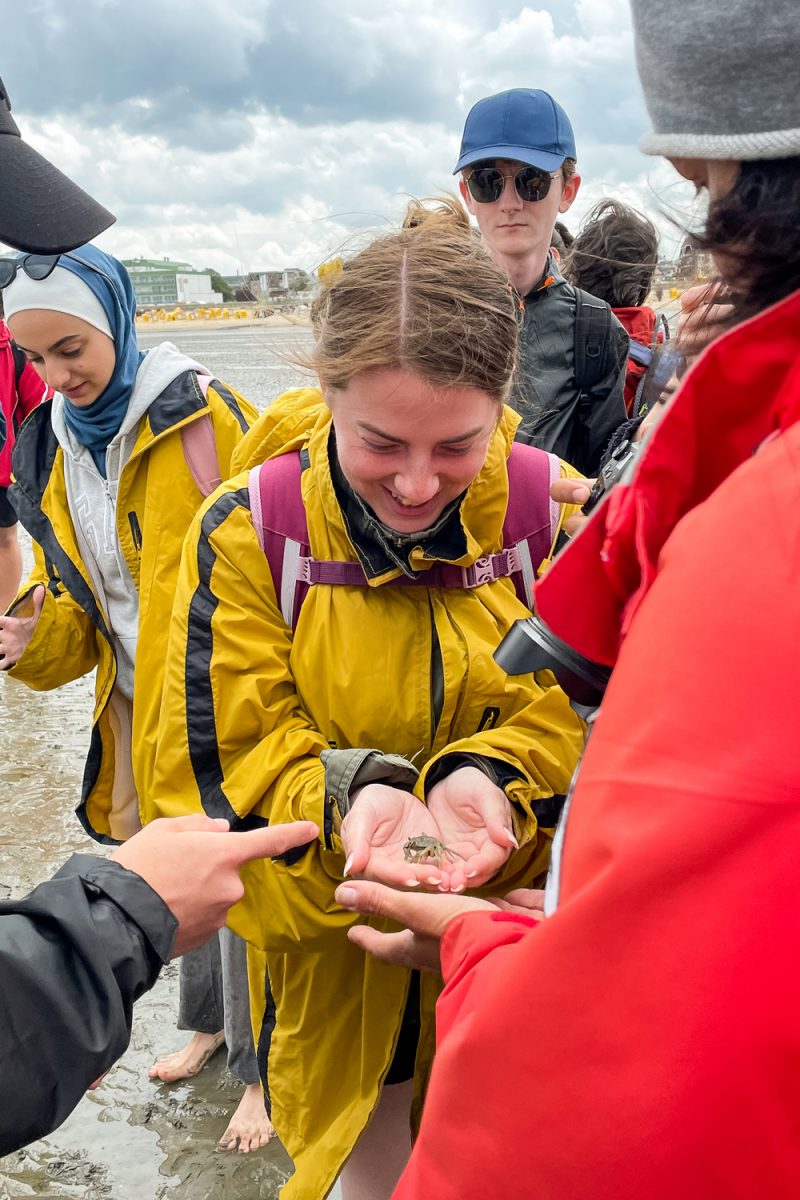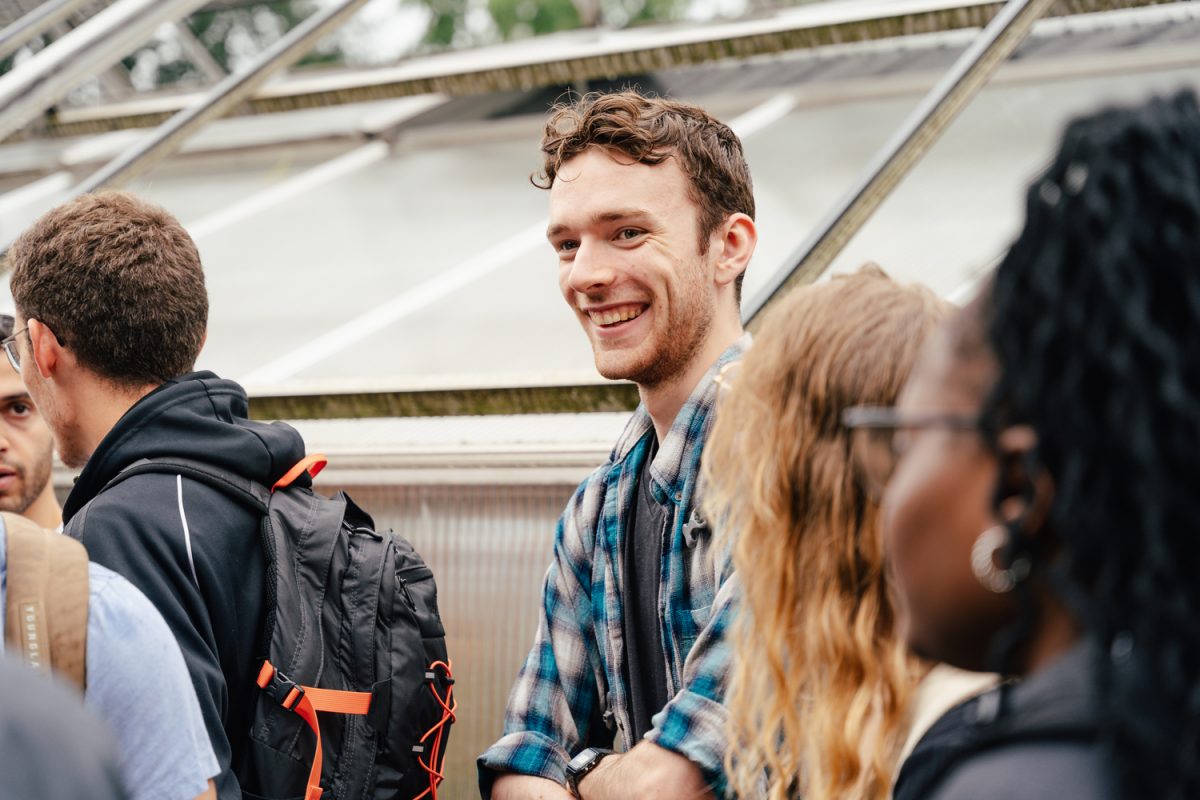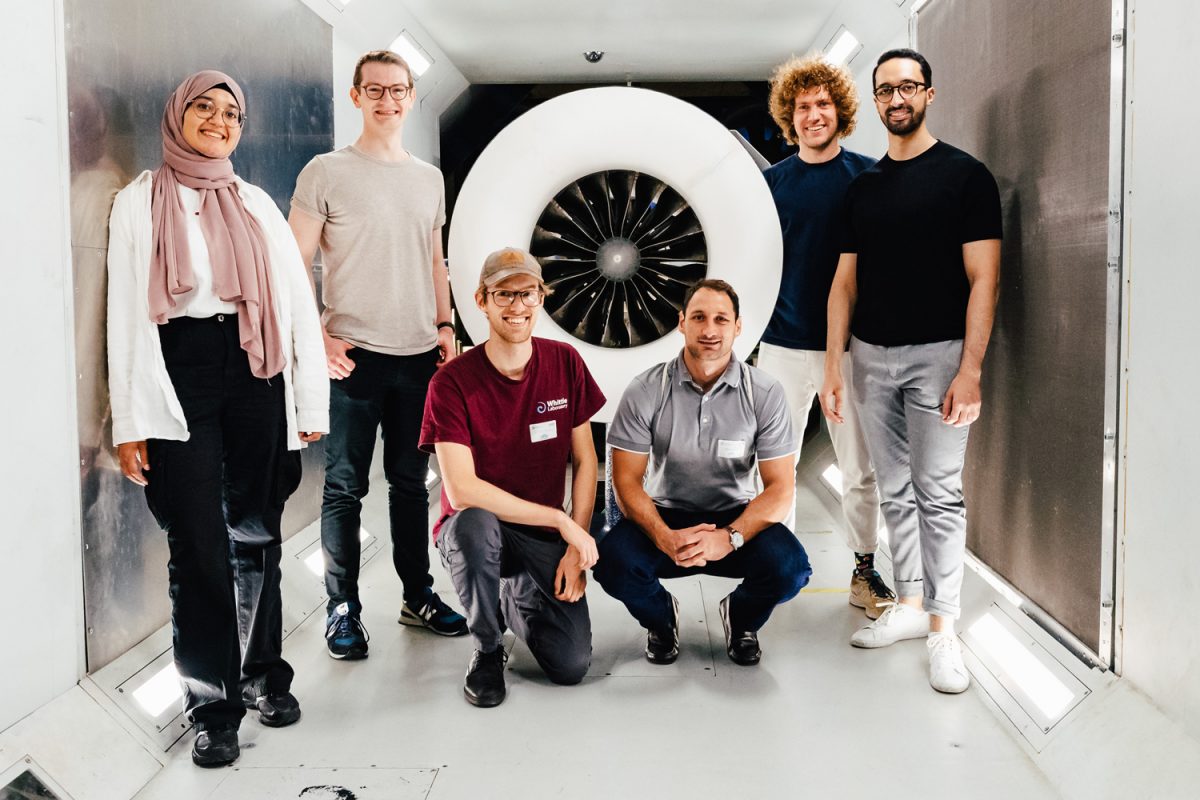“Summer Schools are an important instrument of internationalization” TU Braunschweig Summer Schools gather students from all over the world on campus
Summer Schools are a special teaching format offering students from all over the world to come together at a university for several weeks. They participants are able to gain international experience, work on current research topics, get to know the language and culture of their host country, or even to establish contacts for research projects or pursuing a doctorate. Because the time spent together is so intense and the many leisure activities and excursions allow for extensive networking, Summer Schools are often an unforgettable time abroad. For many international students, the short-term stays are also an alternative to the classic semester abroad, for example for students from the USA, in whose curricula a semester abroad.
At TU Braunschweig, the overall brand “TU Braunschweig Summer School” embraces all offers of central institutions and faculties and strengthens the joint public appearance.
“Summer School of German Language and Culture”
The “Summer School of German Language and Culture” has a long tradition. The two Summer Schools are held by the International House and take place for six weeks in June and July and for four weeks in September. “The interest in our courses is great and the spots are booked up quickly,” says Summer School coordinator Joana Zimmer. “We are very pleased that students show so much interest in our offers.” 58 students from five different continents took part in the two courses this year.

“I am very grateful to have had the opportunity to make friends and experience so much with so many cool and interesting people from all over the world,” says Summer School participant Olivia Pierce. Photo: International House/TU Braunschweig
The participants came from the U.S., India, South America, Japan, China, Turkey and various European countries, the majority of them from partner universities. In addition, eight scholarship holders* from Lower Saxony’s partner regions Tanzania and Eastern Cape (South Africa) were able to participate in the programs. “I think it is great to see how quickly the group members, some with completely different cultural backgrounds, come together and real friendships are formed,” Zimmer adds. According to her, many of the students can imagine coming back to TU Braunschweig later on for a semester abroad or a research stay and have asked for advice on study opportunities during their stay.
In the Summer Schools of the International House, the participants learn German in small groups at different levels up to B2 and receive additional cultural studies lessons. They also take part in an extensive leisure and excursion programme, which helps the students to quickly network with each other and to experience the content of the regional studies lessons directly in everyday life. The programme includes excursions to Berlin, Goslar and Bremen, as well as to the Harz Mountains and the North Sea coast. In addition, there are tours through research centres and companies in the region.
Summer Schools as onboarding support

“The most valuable thing about the Summer School was having someone to ask questions to. Being picked up from the train station or getting assistance in opening a bank account is a great relief. It is also great to meet so many people who are in the same situation as you.”, says Summer School participant Owen Heffermann. Photo: Simone Fürst/TU Braunschweig
The September Summer School is especially interesting for students who start their studies or research stay at TU Braunschweig in the following winter semester, such as the students of the double degree programme with the University of Rhode Island. “The students take part in this Summer School to improve their German language skills and to get to know the university and its surroundings before they officially start their studies,” explains Zimmer. The accompanying programme in this course is therefore also more focused on onboarding and study preparation. The course schedule includes visits to the library, meetings with contact persons at the university, and very practical assistance for everyday life: for example, Zimmer helps students register with the city of Braunschweig. “This allows us to prepare students much more intensively for their studies than is possible, for example, in an introductory week,” says Zimmer. Of the 27 participants in the September Summer School, 23 will stay in Braunschweig afterwards. 13 of them will start an exchange semester and ten DAAD KOSPIE scholarship holders will stay for research stays at various institutes.
New offer: “Summer School for Advanced Sustainable Aviation Technologies”
This summer, for the first time, the Cluster of Excellence SE²A of TU Braunschweig (Sustainable and Energy-Efficient Aviation) together with the Association for the scientific development of ATM in Europe (ASDA) offered a two-week summer school focusing on interdisciplinary exchange on the topic of sustainable aviation. Not only international students, but also students from German universities could participate. Experts from TU Braunschweig, partner universities and research institutions gave the participants insights into current research and initiated a discourse. Here, too, the academic part was supplemented by leisure activities and excursions. The programme included a barbecue, a guided tour through the Braunschweig research airport and a guided city tour.

The participants of the “Summer School for Advanced Sustainable Aviation Technologies” experienced first-hand research – as here during the guided tour at the Institute of Jet Propusion and Turbomachinery. Photo: Lasse Ebbecke/TU Braunschweig
The programme was a complete success for all participants, as Professor Jens Friedrichs, spokesman of the SE²A cluster, sums up: “I am really thrilled how quickly we found a common scientific language in this diverse group of participants from many different countries, and on this basis were able to discuss scientific approaches to solutions in a really serious and profound way.”
Professor Peter Hecker, Vice President for Research and Early Career Scientists at TU Braunschweig, adds: “The international summer schools are an excellent opportunity to further promote TU Braunschweig’s research fields among students and to show them career paths at TU Braunschweig. In this way, we may be able to welcome them back to our university as scientists in the future.”
Summer Schools also serve as a recruiting tool
In the upcoming year, students from all over the world will once again be able to come to TU Braunschweig as part of the Summer School programme. In the future, the offer will be expanded even more. In order to further strengthen the onboarding aspect, another course during spring will be established as preparation for the summer semester. Furthermore, the International House offers support to expand the number of subject-specific summer schools. “Summer Schools are an important instrument of internationalization and are used by many universities in international recruiting,” emphasizes Joana Zimmer. “Braunschweig as a study location and the offers of TU Braunschweig become more visible for an international target group through the Summer Schools. This is another reason why we would like to gradually expand the offer.”

